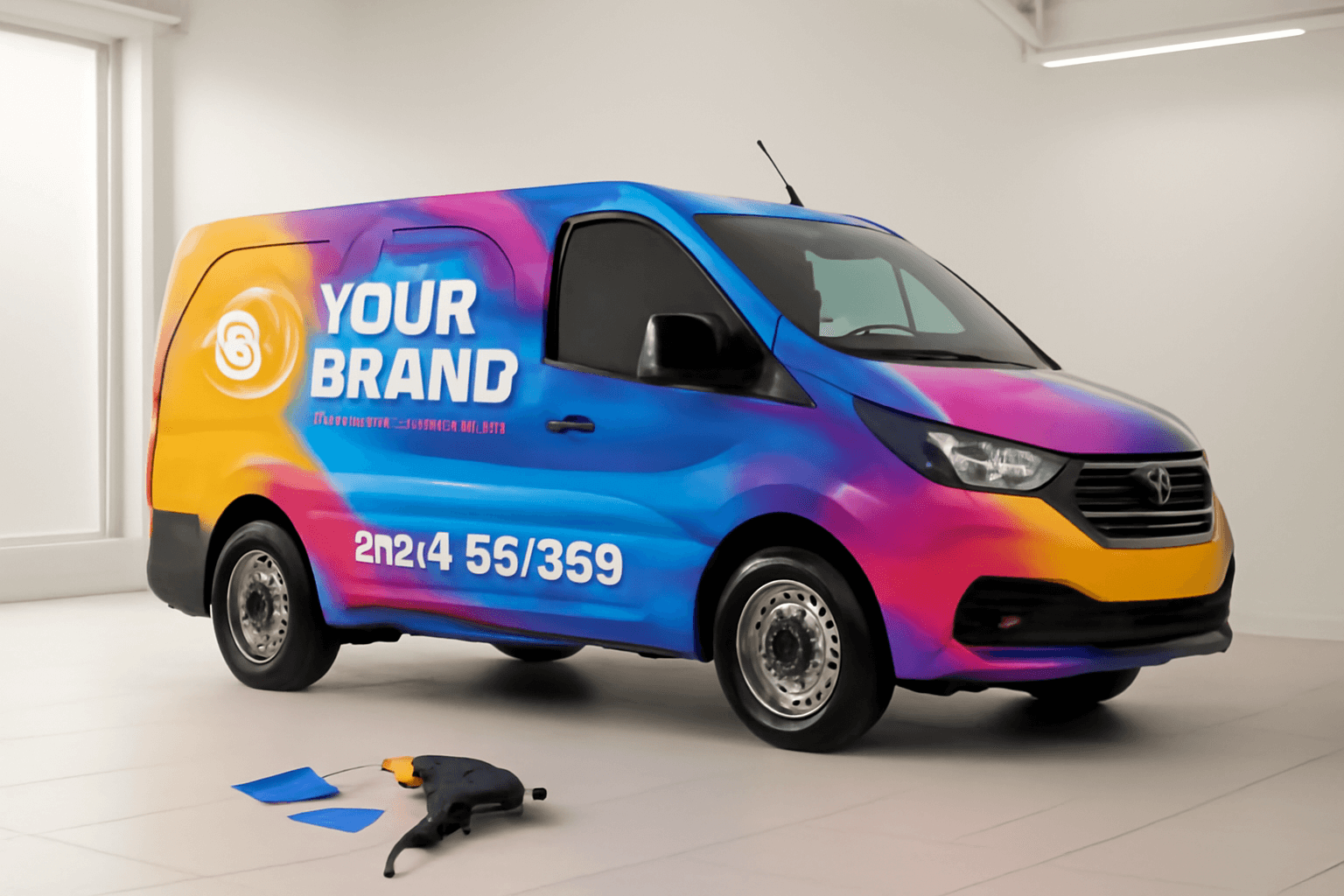Vehicle wraps have become a game-changer in automotive customization and business marketing. Whether you’re a car enthusiast looking to give your vehicle a new look or a business aiming to boost brand visibility, a full vehicle wrap is a great option. These wraps are not only visually striking but also serve as long-lasting protective layers for your vehicle’s original paint.
But before you dive into getting a full vehicle wrap, it’s important to understand how much it costs. The price of a full vehicle wrap can vary significantly based on several factors. This blog will explore the elements that influence vehicle wrap prices and provide insights into how much you can expect to pay for a complete wrap job.
What is a Full Vehicle Wrap?
A full vehicle wrap involves covering the entire surface of your vehicle with high-quality vinyl film, transforming its appearance. Unlike partial wraps or decals, which cover only a section of the vehicle, a full wrap provides complete coverage, often including the sides, roof, hood, and rear.
These wraps are made from durable, high-performance vinyl that can mimic various finishes, including matte, gloss, satin, and even textured looks like wood grain or carbon fiber. The wrap can be customized with designs, logos, and branding elements, making them ideal for businesses looking to advertise on the go.
Factors Influencing Full Vehicle Wrap Prices
Several factors play a crucial role in determining the cost of a full vehicle wrap. These include the size of the vehicle, the complexity of the design, the quality of materials used, and whether the wrap is professionally installed or done DIY-style.
Vehicle Size and Type
The size and type of the vehicle significantly impact the cost of the wrap. Smaller cars like sedans generally cost less to wrap compared to larger vehicles such as SUVs, vans, or trucks. Larger vehicles require more vinyl material and more labor time, which naturally increases the overall cost. For example, wrapping a standard sedan may cost anywhere from £1,500 to £2,500, while wrapping a larger van or truck could cost between £2,500 and £4,000.
Design Complexity
The design of the wrap is another key factor. Custom graphics, logos, and complex patterns will drive up the price compared to simpler designs. The more intricate the design, the more time it takes to print, cut, and install. Additionally, special finishes like matte or chrome wraps tend to cost more than basic glossy finishes.
Material Quality
High-quality vinyl brands like 3M, Avery Dennison, or Oracal may cost more than generic brands, but they offer better durability, UV resistance, and longevity. High-quality vinyl also ensures that the wrap will last longer, making it a worthwhile investment for business vehicles or cars exposed to harsh weather conditions.
Installation Method
Choosing a professional installation service adds to the cost but ensures a high-quality finish. Professionals have the expertise and tools to apply the wrap smoothly and without air bubbles, which is difficult to achieve with a DIY approach. Professional installations can range from £500 to £1,500, depending on the vehicle and complexity of the wrap.
Average Full Vehicle Wrap Pricing
The cost for a full vehicle wrap can range widely based on the vehicle’s size, design complexity, and materials used. Here’s an average breakdown:
- Small Cars (e.g., sedans): £1,500 – £2,500
- Mid-Sized Cars (e.g., hatchbacks, compact SUVs): £2,500 – £3,500
- Large Vehicles (e.g., vans, trucks): £3,000 – £4,500
These prices typically include the wrap design, materials, and installation. Custom designs or specialty finishes (like carbon fiber or chrome) may push the price toward the higher end of the range.
Professional Installation vs. DIY Vehicle Wrapping
Why Professional Installation is Worth the Cost
While DIY vehicle wraps are an option, they often come with risks. Professional installers have experience working with vinyl wraps and can ensure that the job is done correctly. They have the right tools, including heat guns, squeegees, and cutting tools, to achieve a smooth, seamless finish. A professional installation typically takes 2 to 3 days.
DIY Vehicle Wraps
For those on a budget, DIY vehicle wraps are an option. However, achieving the same level of quality and durability as a professional installation can be challenging. DIY wraps are more prone to wrinkles, air bubbles, and misalignment. If you choose to go the DIY route, be sure to invest in proper tools and give yourself ample time to complete the project.
Return on Investment (ROI) of Full Vehicle Wraps
For businesses, the cost of a full vehicle wrap is often recouped through increased visibility and brand recognition. According to studies, vehicle wraps can generate 30,000 to 70,000 impressions per day, depending on the vehicle’s location. This makes vehicle wraps a highly effective form of mobile advertising.
Businesses using vehicle wraps have reported increased sales and customer inquiries, particularly when the wrap is used to advertise products or services in high-traffic areas.
How to Find the Best Vehicle Wrap Provider
When selecting a vehicle wrap provider, consider their experience, customer reviews, portfolio, and warranty offerings. A reputable provider will offer transparent pricing, use high-quality materials, and provide professional design and installation services.
FAQs
- How much does a full vehicle wrap cost?
- A full vehicle wrap typically costs between £1,500 and £4,500, depending on the size and complexity.
- What is included in the price of a full vehicle wrap?
- The price usually includes the design, materials, and professional installation.
- How long does it take to install a full vehicle wrap?
- Professional installation generally takes 2 to 3 days.
- Can vehicle wraps be removed easily?
- Yes, vehicle wraps can be removed without damaging the underlying paint.
- Are vehicle wraps durable and weather-resistant?
- Yes, high-quality wraps are durable and designed to withstand UV rays, rain, and other weather elements.
